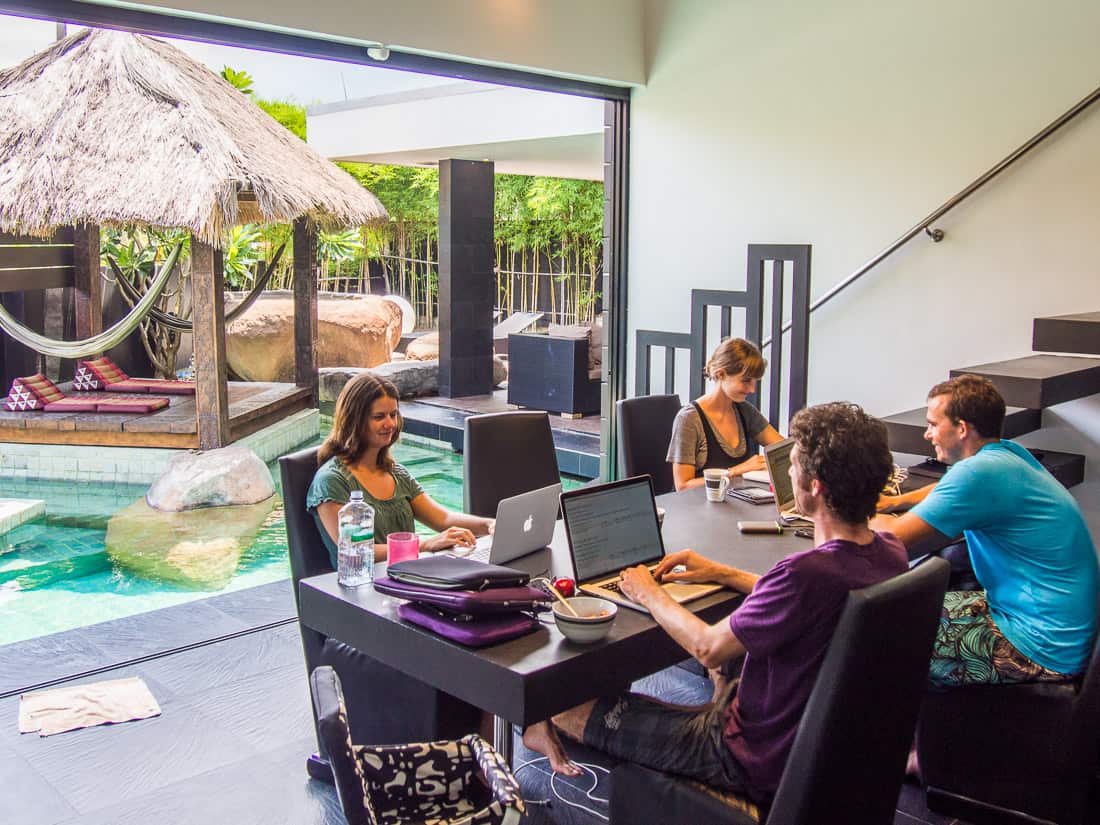
The cost of living in Europe can be a major factor. You will find some countries more affordable than others. Living in large cities can also be costly so make sure to estimate your budget before you move. Consider where your family resides and how far you are able to get to them.
There are many choices when it comes time to decide where to live. Albania is a great country to live in if you're looking for an affordable option. Even though it is a small country, the quality of life in Albania is quite high. It is also a beautiful country to visit, with its majestic mountains and breathtaking beaches.
Bulgaria is another country that's affordable to live in. It has a thriving tourist industry making it a great choice for expats wanting to work or study. It is situated between Macedonia/Albania, and it is a relatively underdeveloped nation that is easy to look at.

You'll be amazed at how much money can be made. A house you buy for less than one-quarter of a million dollars can be yours. If you're lucky, you might even be able to purchase property as a citizen of the European Union.
These are some of the most affordable places in the world, but you will need to put in some effort to make sure your money goes as far as it can. Nevertheless, if you are willing to do so, you will be rewarded with some of the most beautiful scenery in the world and a low cost of living. This is especially true when you consider living in rural areas.
Romania is a wonderful choice for anyone who loves the outdoors. You will find a wide range of hiking trails here. Additionally, the country is home to some of the most beautiful lakes in Europe. You can go on a weekend camping trip without spending too much with a monthly cost of living around 250 euros.
Poland, Hungary, Croatia, and Croatia are some the most populous nations in Europe. Therefore, it is important to make an effort to save money. These three countries also offer safety. They also have a lower cost of living than other EU members. They are all centrally located, making it easy to travel around.

Although Slovenia is an ex Yugoslavia nation, it is still relatively small and one of the most affordable places to live. Although not a tourist destination, the country has a lot of historical and cultural sites. You can also enjoy quality skiing in winter thanks to the two mountain ranges.
FAQ
What is the digital nomad lifestyle?
A digital nomad lives a life of mobility. Their lives are flexible, mobile, and fluid. They can go anywhere they want with a laptop and an internet connection.
They travel for both business and pleasure, working anywhere there's wifi. They live in suitcases for weeks, traveling from one place to another without any thought.
Digital nomads are the future. They are the next generation who doesn't have land or a home. These kids grew up playing online videogames.
The digital nomads are the future generation of travelers. They are the ones that will revolutionize how we travel.
What is a digital nomad's typical day like?
A digital nomad may have a different day depending on their location. This could include:
-
New accounts and logins
-
Content creation (blogs, article)
-
Researching new markets
-
New contacts
-
Finding new opportunities
-
Negotiating contracts
-
Working on projects
To be a digital Nomad, you have to learn how manage multiple aspects of life.
This means you need to create a schedule that will allow you to complete everything while still enjoying your life.
One example is that you might have a morning routine which includes answering emails, checking email and scheduling meetings. You then take some time to relax after you have finished lunch.
After dinner, you start your evening routine. You will check social media, read blogs, write blog posts, and send emails. The rest is yours.
This will help you feel less stressed and increase your productivity throughout your day.
Which jobs do digital nomads typically do?
A digital nomad travels between cities to find work. They travel with their suitcases to get work. Their lifestyle allows them to be flexible in how they work and when. Digital nomads are able to work from anywhere in the world, even remote areas like deserts, forests, mountains and islands.
Writing, web design, web engineering, software engineering and translation are the most popular types of work.
Digital nomads are those who travel and work remotely. This allows them more flexibility in their location and helps to reduce living expenses. Many digital nomads also prefer to travel alone. Others find it easier connecting with local communities since they're not tied to any one place.
Where do digital nomads typically stay?
Popular destinations for digital nomads include the Caribbean and Southeast Asia. There are places you can live in your home for several months.
A digital nomad should feel at their best wherever it is they are most happy. This could mean somewhere tropical and warm or wherever they find inspiration.
Digital nomads may be attracted to these areas by the beautiful weather, but they will stay there longer if they have enough money to rent.
Digital nomads travel light but spend more time outdoors than anyone else. It's crucial that they find a place that offers plenty of outdoor activities when choosing a destination.
These include hiking, surfing, kayaking, skiing, diving, sailing, fishing, mountain biking, horse riding, and even yoga.
They love cities too and would happily move to any city that provides access to nature.
A suitcase-less person should find a place that has wifi. Avoid remote areas with poor mobile signal.
A great way to avoid these challenges is to look for a hostel. These places offer accommodation and internet access.
Hostels make it easy for digital nomads to keep their expenses low and pack light. These hostels are also extremely social, so it is easy to meet new people.
Hostels often have shared kitchens or common areas where guests can get together. You can also find laundry facilities, bike rentals and tours at these hostels, as well as plenty of opportunities for exploring the nearby attractions.
Which countries are the most loved by digital nomads
According to Nomadic Matt, India has the highest number of digital nomads. It is home to more than 1.5million people.
This is not surprising, as the country has some of the best internet connections around. WhatsApp is a great way to stay in touch with your family and friends.
Nomadic Matt also cites Australia, Canada and France as top destinations. These countries offer high quality living, affordable accommodation, and great weather.
If you're looking to move abroad, here are five ideal countries:
-
Argentina is safe and affordable
-
Chile – It is beautiful and safe.
-
Costa Rica – It's safe and friendly.
-
Ecuador - It is safe and affordable.
-
Mexico - It's affordable, safe, and near the US border.
How do digital nomads get paid?
Digital nomad job sites such as Upwork and Freelancer are great for finding remote jobs. However, they make it easy for freelancers and contractors to find clients.
They can help you build a portfolio of skills and show off your experience. They can give feedback and track your projects.
You can also use a variety of online tools and apps to help you manage your time and communicate with potential employers.
However, there are also some pitfalls. When searching for work, you might encounter fake profiles or scams. Many freelance platforms charge fees and do not offer any value to clients.
There are always the possibility of receiving negative feedback from former clients. Or you might fall victim to identity theft.
It is best to research the site before you sign up. Look for reviews and testimonials. Do not trust employers that have not thoroughly vetted candidates.
Scammers can be tricky to spot, especially if you work remotely.
It won't be a problem if you're cautious.
What is the cost of being a digital nomad in your country? And how many years do you have to travel in order to be a digital nomad.
There are many ways to define digital nomadicism. Digital nomadism can be defined in many ways. It could refer to entrepreneurs, freelancers and travelers as well as ex-pats who frequently move but still have their main residence in one country or city.
Some people use the term for those who live in remote areas and work remotely. Do something online to become a digital nomad. It is not enough to be just traveling around the world.
Some digital nomads have enough income that they can live on their own and not need to look for work. Others make less that $10,000 per annum.
Nomad List reports that the average digital nomad's monthly salary is $3,500.
You don't have to travel for a set time in order to be a digital nomad. Most people believe that if your travels are for work, then you have already been classified as a digital nomad. Even if your job is only part-time you still could qualify.
According to NomadList the average stay time for digital nomads ranges from 3 to 6 months. This means that you will likely need to travel at most twice in this time.
Digital nomads can work from home which allows them to save on rent. They also avoid the commute.
This is why becoming a digital nomad might not be for everyone. It takes a lot planning and discipline. To be successful, you need to have a lot more time.
Here are some things you should consider if you want to become a digital nomad.
-
How much time are you willing to spend on your job?
-
What kind of work do you want to do?
-
Where are you going to be based?
-
Do you plan to move frequently?
-
Do you have savings?
-
Are you willing and able to sacrifice certain aspects (such relationships) of your life?
-
Can you afford to give up your current job and take a new one?
-
Have you thought about what you'd like to do after you finish working?
-
Are you resigned to not jumping?
-
Do you have any questions about being a digital nomad?
-
How would you describe your life?
-
Would you recommend this book to anyone else?
-
What advice do you have to offer new digital nomads?
-
Would you recommend any advice to someone who is considering becoming a digital nomad.
Statistics
- The fees range from 5% to 20%, depending on how much you make working for a specific client. (travelinglifestyle.net)
- They also offer trip cancellation insurance that covers up to 100% of the trip cost. (travelinglifestyle.net)
- In general, you can expect to pay around 5 to 10 percent of the total cost of your trip for travel insurance. (travelinglifestyle.net)
- Being a nomadic entrepreneur means living life 100% on your terms. (worldpackers.com)
- 98% of claims are paid: Filing an insurance claim is relatively easy and seems faster than the industry average. (travelinglifestyle.net)
External Links
How To
Do digital nomads have to pay taxes?
Tax laws can change often. So do tax rates. Additionally, there are variables when you work remotely and live abroad. However, one constant is that the IRS (Internal Revenue Service), doesn't care if you live in a foreign country or how much money your make.
Your status as an expatriate is not important to them. They may not even know that you exist.
But you might be surprised to learn that you'll face additional responsibilities once you move overseas. This includes US income tax filing.
For most Americans, the standard deduction is $6,300. You won't owe any federal income taxes if you earn more than that. If you earn $75,000-$150,000 and file jointly you'll be responsible for 10% of your adjusted income.
This percentage increases to 15% for those who earn more than $150,000
But you may qualify for deductions based on your foreign earnings. On your American return, 25% could be deducted from your worldwide income.
You also can claim expenses such as travel costs while traveling internationally.
However, you will need to keep detailed records of all expenses and submit them along with your tax return.
You can avoid taxes by becoming a digital nomad. This lifestyle allows for you to change jobs easily without worrying about breaking any tax rules.
Here are some suggestions for those who want to work remotely and live abroad.
-
What do you want out of your digital nomad career? Before you even start to look at the possibilities, you need to determine what it is you desire. Are you looking to travel around the globe? Earn extra cash? Do you want to be your own boss?
-
Decide Where You Want to Go - After you have decided what you want, choose where you would like to travel. Do you want to visit Europe? Asia? South America Africa? Australia? Canada? New Zealand?
-
Find a Job That Meets Your Skillset. Do you need something technical? Maybe something creative? Perhaps something artistic? A business-related idea?
-
Look at Different Opportunities. Now that you've narrowed your search down and found a job that is right for you, it's time explore other options. You have many options for working remotely. Some people like to be their boss. Others prefer more flexibility in their work hours. Others will still choose a 9-5 job. It all comes down to what you want.
-
Be Aware of the Costs. When searching for remote employment, it pays to shop around. It can help save you time by comparing prices before signing any contract. Keep in mind that not every company offers the exact same benefits package. Some companies only offer healthcare insurance. Others offer housing assistance. Many employers offer free coffee breaks or lunches. And some have flexible hours. There are many opportunities. It is important to understand exactly what you're getting into.
-
Get Ready To Work From Anywhere - Even though you live abroad, you'll still need to prepare for work from anywhere. You should ensure you have reliable internet so you can work whenever it is needed. This also includes having a computer that is reliable and works overseas.
-
Start an Online Business - An e-commerce website is another great way to make money online. E-commerce websites allow you to sell products directly from your website or make use of other sites that can help you sell. This is another excellent way to make money.
-
Take One Thing at A Time - Begin your adventure by starting with one thing. Write articles, but not articles, if you're a writer. Write a book review instead. Or start selling books online.
-
Join Forums On The Internet - You can join forums to learn more about becoming a digital nomad. There are many forums that can help you get started.
-
Take Advantage Of Free Resources - You can use free resources as a digital nomad. Nomadic Matt and Nomad List frequently post useful information.
-
Build Relationships With Other Digital Nomads - If you plan on spending most of your time traveling, then building relationships with other digital nomads may be important.
-
12. Network In Person When Possible - One of the best ways to network is to meet face to face whenever possible. This will help you build relationships and gain advice.
-
Spend Less Than You Earn - Spending less than you earn should always be a priority. If you spend too little, you won't have the ability to travel as often.
-
Travel Often - Traveling often helps keep you motivated. At least three countries should be visited each year.
-
Flexibility is the key to success. Don't let yourself get tied down to a particular location. Even if the place you currently love is not ideal, you might find something more suitable later.
-
Find ways to find out more about your new locale - It's important to get to know the locals. Read books and magazines. Watch movies and documentaries. Visit museums and galleries.
-
Have fun! It's easy for us to forget why we became digital nomadic travelers. It's important to enjoy your travels.
-
Stay connected – Keep in touch back home with your friends and family. They will miss you, however they will appreciate being able to keep up with the current situation.
-
Use Social Media as Much As You Can - It's a great way to stay connected with your friends and family. You can share photos, videos and other updates through it.